Assist India – Building Ideal Communities
Projects
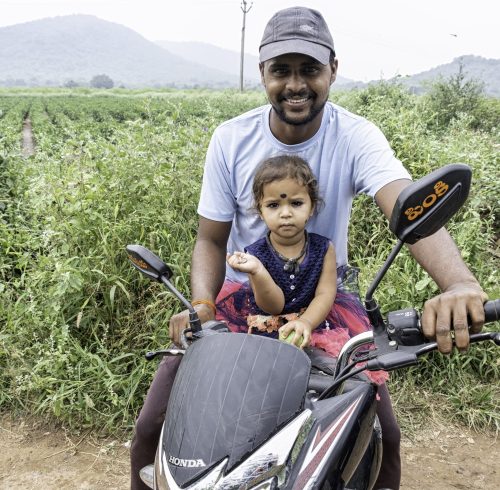
Comprehensive Community Development Project
Our Comprehensive Community Development Project (CCDP) is a programme of wide-ranging development activities which ASSIST delivers in one community over a period of three to five years. Following a detailed community led needs assessment in a village, we use the first six months for intensive awareness generation, mobilisation and community-based group formation. Only then, we focus on the execution and monitoring of the development activities with the participation of all community members.
To deliver a successful CCDP project, the local members much be fully committed to the scheme, including their own collective contributions of labour, and locally available resources. As this project follows the detailed steps explained on the ‘Our Approach’ page, ASSIST also trains the community to approach the local government (panchayat) to receive financial support throughout the project, via its Village Development Society (VDS), which will be formed near the beginning of the project.
ASSIST only external support for the remaining funds needed to compliment the locally available contributions in India. Partners supporting this CCDP project provide this support over the medium term (3-5 years) and receive regular update reports throughout. ASSIST is extremely grateful to the various donor organisations who have supported 177 village with CCDP projects to take place over the past 25 years.
Case study
Elachetladibba
Elachetladibba is an island community located near the Bay of Bengal. The village has 330 families, who are involved in either fishing or agriculture. Before ASSIST’s entry into the area, this island was suffering from low levels of child education, lack of roads and proper drainage, poor health and hygiene, and inadequate access to safe drinking water (the communities are surrounded by brackish water). To make matters worse, frequent disasters such as cyclones were perpetually flooding the community, destroying livelihoods, and washing away the tiny huts in which most families lived.


Kukkalavaripalem
Kukkalavaripalem is a coastal village consisting of 148 families located at the eastern end of Prakasam District adjacent to Bay of Bengal. When ASSIST conducted its needs survey, we found that eighty-three families owned small pieces of land, though they could barely cultivate one crop a year, due to water scarcity. The remaining families were landless, and depended on menial jobs, which are few and far away. Nearly all families were living in small huts, and a small open well was the only source of drinking water and domestic water for the entire community.
Featured Projects
Comprehensive Community Development describes ASSIST’s overarching approach, which can be delivered as a single 3–5 year programme (CCDP), or as individual projects.
The most marginalised groups and communities in Andhra Pradesh are facing a changing set of challenges due to changing social, political, and environmental factors. Groundwater scarcity and contamination is a growing issue in arid inland villages of Markapur, for example, while intensive farming Veldurthy is causing soil degradation. Where heavy industries such as lime and slate production draw in migrant workers, the makeup of village communities is constantly changing .
In these regions, ASSIST is coming up with innovative project ideas to tackle each new challenge. Projects will always be delivered based on the expressed needs and wishes of the community, whether there is an existing VDS structure in place or not. ASSIST remains at hand in its role as facilitator to support the VDS to tackle new challenges whenever they emerge.
Water Conservation, Usage and Management
ASSIST is acutely aware of the water crisis affecting India – 600 million people in India are working in areas of high to extreme water stress. ASSIST has been focusing its work in the areas of Andhra Pradesh and Telangana where the lack and poor maintenance of water and sanitation infrastructure causes recurrent illnesses such as diarrhoea, typhoid, fluorosis, skin and eye diseases.
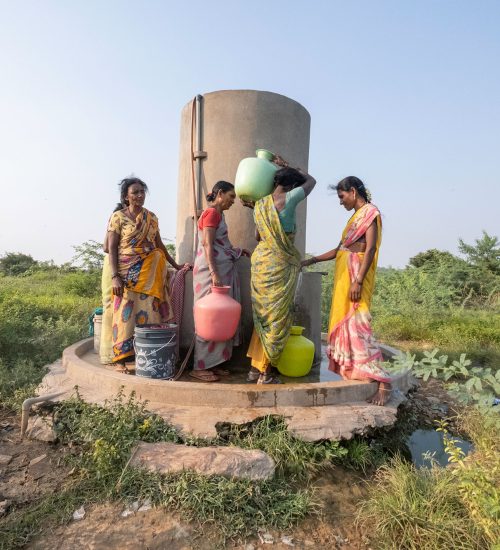
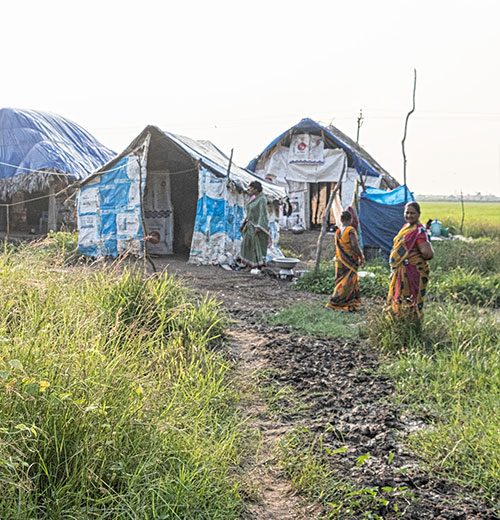
Housing and Sanitation
Families within ASSIST’s target group in rural areas are often living straw huts without electricity, water or sanitation. Housing and sanitation do not only improve people’s hygiene patterns and prevent diseases like cholera and typhoid; they also provide them with a sense of pride and dignity. This is critical to the rural development process as communities can then build the confidence to focus on other development activities to improve their living conditions.
Vocational Training
The majority of ASSIST’s target groups consist of daily wage labourers, marginal farmers and artisans. Many labourers depend on agricultural seasonal work in an area where rainfall is decreasing year by year. To break the cycle of dependence on agriculture and menial jobs, ASSIST aims to improve the economic status of poor communities by identifying sustainable income sources and providing corresponding skill training.
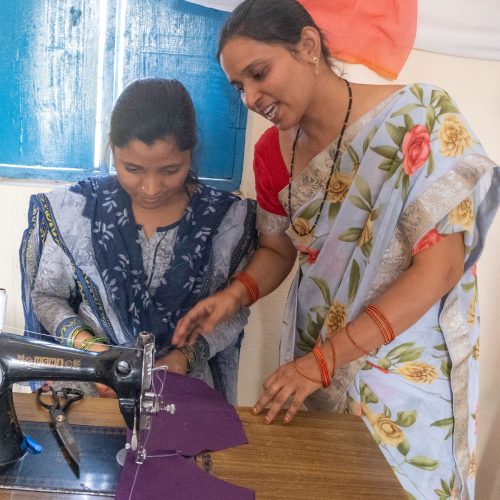
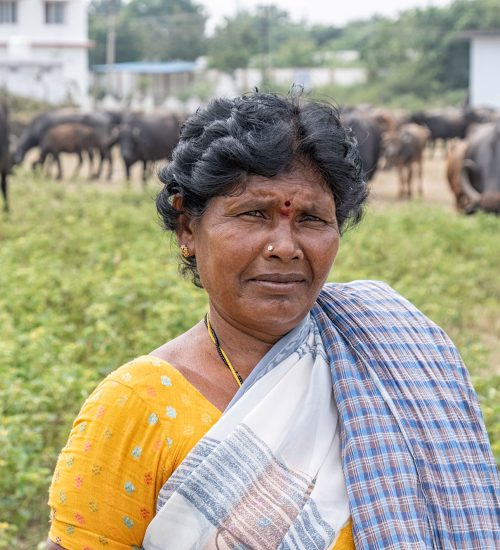
Sustainable Agriculture
During the 1970s, the barter system was used in much of rural India, where people exchanged essential commodities for their living. Since then, new technologies have created more opportunities for income generation nationally; however, rural farmers have become poorer in relative terms during this period, with landlessness becoming increasingly endemic. Seventy percent of India’s population depend on agriculture for their livelihood sources, out of which most are small farmers. In previous years, farmers mostly cultivated tobacco, but then gradually started taking up cotton, chilli, or other commercial cash crops. Continuous cultivation without rotation, and the unlimited use of fertilizers and pesticides has depleted the fertility of the soil.
More Case studies
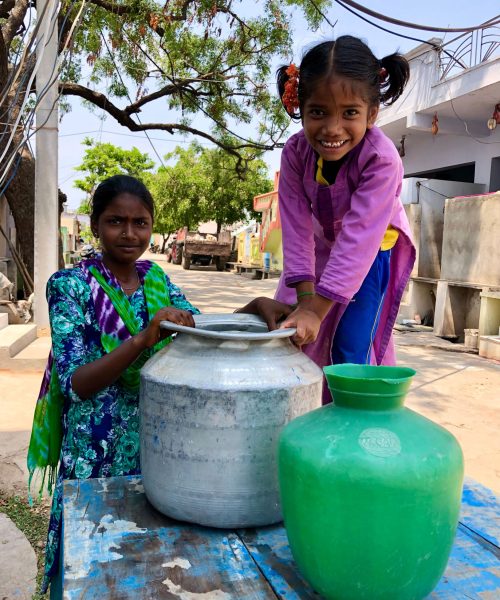
Clean Water Supply
Nagul has been coordinating the recent construction of an Reverse Osmosis (RO) plant in his village Pitchaia Bavi Thanda. It is one of the seven villages in the tribal area of Veldurthi where ASSIST has been implementing a horticulture programme. The provision of RO plants in each village is a side project of the programme.

Education Scholarships
Swathi hasn’t always been lucky in her life. When she was two years old, her father left her and her mother, and their only option was to live with her grandparents in Rayavaram, a village in Markapur area. In 2020, when Swathi was 18 years old, she lost her mother. One year later, her grandmother died of COVID.
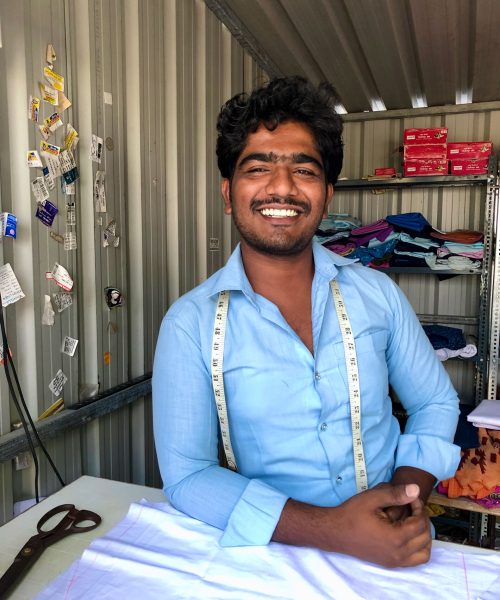
Micro Business Loans
David (23) set up his tailoring unit when he was only 18 years old. With a Revolving Fund Loan of ASSIST, extended and managed by the Village Development Society of Manginapuddi (Markapur), David purchased a second-hand sewing machine. It wasn’t easy at first to get the loan. Initially the VDS was reluctant, not only because…
Our testimonial




